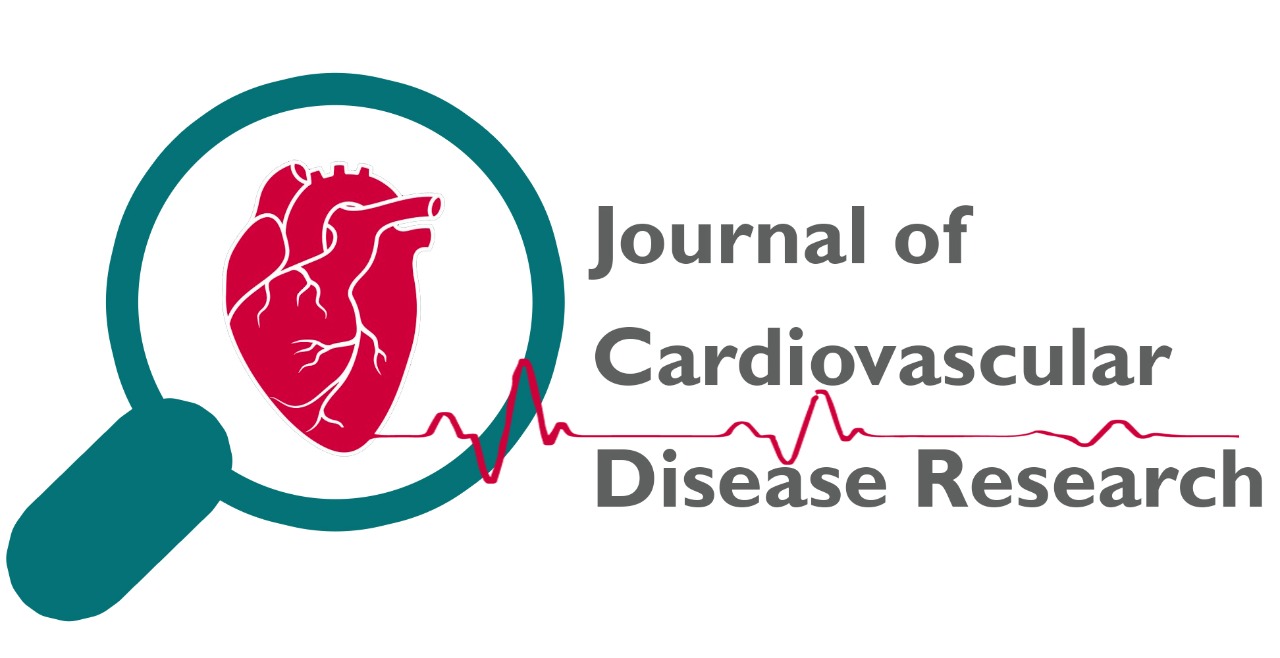
Serum endocan levels in patients with coronary artery disease and association of serum endocan levels with severity of coronary artery disease
Premkumar G, Badrinath. A. K, Biju D. R, Aakash T. Ajith
JCDR. 2023: 1973-1984
Abstract
Coronary artery disease (CAD) is the single most frequent cause of death worldwide. Over 7 million people every year die of CAD, accounting for 12.8% of all deaths. Atherosclerosis is the primary cause of ACS, with most cases occurring from the disruption of plaque from a non-severe lesion. Endothelial dysfunction is considered as an early change in atherogenesis. Cardiovascular disease is associated with raised levels of systemic inflammatory markers. Endocan (previously known as Endothelial cell specific molecule-1, ESM-1), is a potential immuno-inflammatory marker that may be linked to cardiovascular disease. It plays a role in endothelial dependent pathologic diseases, such as inflammatory disorders, tumour progression and adhesion, and migration and angiogenesis. It is accepted as a potential endothelial cell marker. Aim: To estimate Serum endocan levels in patients without Acute Coronary Syndrome and in patients with acute Coronary Syndrome and association of its levels with severity of Coronary Artery Disease based on Coronary Angiogram. Methodology: This was a rural based teaching hospital cross sectional study in ACS patients. Sample size was calculated to be 74 (37 in each group). Group 1 included patients diagnosed with acute coronary syndrome based on clinical presentation and investigations and Group 2 were those without any clinical and investigatory evidence of ACS. The patient baseline characteristics, serum glucose level, lipid profile, ECG and severity of ACS assessed by coronary angiogram. The serum endocan levels were estimated in the study population by ELISA method, and it was compared between the two groups. Results: The Serum Endocan level was significantly elevated with p value of <0.001 in group 1 with mean serum Endocan levels of 1130.95± 680.55pg/ml. Minimum endocan levels observed was 220 pg/ml and maximum value observed in our study was 2120 pg/ml. when compared with patients with ACS and without ACS, serum Endocan levels was significantly elevated in ACS group with a p value of < 0.001. When serum endocan levels was assessed with the severity of coronary artery disease (based on CAG), there was not a statistically significant correlation with a p value of 0.47. Conclusion: Serum Endocan levels was significantly elevated in patients with acute coronary syndrome and can be used as marker in diagnosis of ACS. This shows the role of inflammation in the pathogenesis of ACS helping in widening the concept of atherosclerosis.
Description
Volume & Issue
Volume 14 Issue 9
Keywords
|
This is an open access journal which means that all content is freely available without charge to the user or his/her institution. Users are allowed to read, download, copy, distribute, print, search, or link to the full texts of the articles in this journal without asking prior permission from the publisher or the author. This is in accordance with the Budapest Open Access Initiative (BOAI) definition of open access.
The articles in Journal of Cardiovascular Disease Research are open access articles licensed under the terms of the Creative Commons Attribution Non-Commercial License (http://creativecommons.org/licenses/by-nc-sa/3.0/) which permits unrestricted, non-commercial use, distribution and reproduction in any medium, provided the work is properly cited. |
|
|
|
|
|
Copyright � 2022 Journal of Cardiovascular Disease Research All Rights Reserved. Subject to change without notice from or liability to Journal of Cardiovascular Disease Research.
For best results, please use Internet Explorer or Google Chrome POLICIES & JOURNAL LINKS
Author Login
Reviewer Login About Publisher Advertising Policy Author's Rights and Obligations Conflict of Interest Policy Copyright Information Digital Archiving & Preservation Policies Editorial Policies Peer Review Policy Editorial & Peer Review Process License Information Plagiarism Policy Privacy Policy Protection of Research Participants (Statement On Human And Animal Rights) Publication Ethics and Publication Malpractice Statement Corrections, Retractions & Expressions of Concern Self-Archiving Policies Statement of Informed Consent Terms of Use |
Contact InformationJournal of cardiovascular Disease Research,
|




